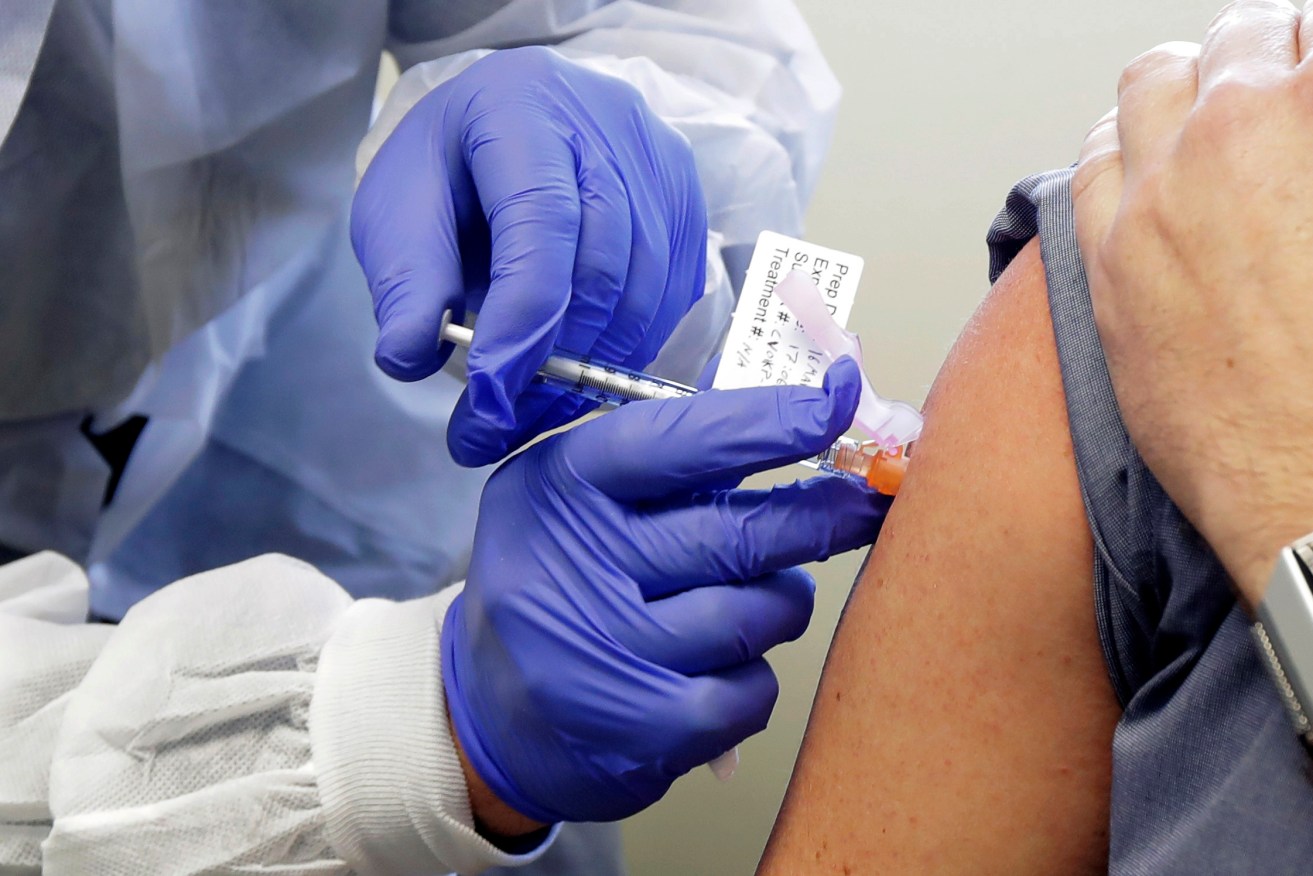Concerns our health network not up to task of vaccinating the nation
Australia struggles to distribute flu shots, let alone any pandemic fix. The federal Department of Health concedes this might be a problem in the fight to vaccinate against COVID-19.

(Photo: AP Photo/Ted S. Warren, File)
The department has ordered an urgent review of production, planning and distribution of vaccines to ensure Australians get the eventual COVID-19 vaccines when, and as, required. Leaving vulnerable groups without protection would only prolong the health crisis.
There is likely to be unprecedented demand in Australia, with a new survey suggesting nine out of 10 people want to be given a COVID-19 vaccine.
It comes as Queensland recorded another two cases, including an Ipswich Hospital nurse who worked in the COVID-19 ward. Health and aged care workers are expected to be among the first to be given any COVID-19 vaccine.
The 37-year-old nurse, and a Staines Memorial College student, 18, have been added to Queensland’s tally, along with a 48-year-old Victorian man who allegedly flew into Queensland with COVID-19 before being placed into quarantine. The alleged border breach has been used by the Palaszczuk government to demonstrate the need for restrictions, which will remain in place for at least another month.
A record number of flu shots, more than 17.7 million doses, were released this year to avoid a double-hit of influenza and COVID-19. While there have been fewer cases of influenza, that is partly attributable to social-distancing measures.
The federal department has told health groups and consultants it accepts there are problems distributing not only the flu shot but other vaccines on the National Immunisation Program. This followed previous reviews and complaints from across the system.
“This feedback pertained most particularly to supply, distribution, access and availability of vaccines in a short time period,” the department said of this year’s rollout.
“In addition, whilst NIP supplies were secure, private market supplies fell short of meeting the heightened demand. To address the issue of increased demand in the private market, the Australian Government negotiated the manufacturing of 1.8million doses of additional seasonal influenza vaccine to ensure the protection of the Australian public.”
A survey of 1,000 Australians, as part of multi-country research by Ipsos for the World Economic Forum, found 88 per cent would get the COVID-19 vaccine. That was among the highest rates in the world, behind only China (97 per cent).
The department wants recommendations to improve the system by Christmas. It has acknowledged that demand for COVID-19 vaccines “could potentially be significant and the forecasting of supply, distribution, implementation and administration will be crucial to the successful delivery of such a vaccination program”.
It is not the first time Australia has had problems in this regard. Two years ago, the federal government raised the possibility of a sovereign manufacturing and research facility for vaccines. However, nothing eventuated and it was regarded by some in the sector as simply a negotiating tactic for a new supply agreement with CSL/Seqiris, the formerly government-owned health giant now playing a key role in Australia’s COVID-19 vaccine development.
After a bad flu season in 2017, a rush on flu shots the following year exposed problems in vaccine supply and distribution, confused public messaging, and vulnerable people missing out. The federal government was warned that if Australia could not manage a normal flu season it was seriously underprepared for a pandemic.
Queensland has now recorded 1125 COVID-19 cases, with 28 currently active and clusters still evident south-west of Brisbane. Victoria, Australia’s worst-hit state, recorded 70 new cases and five deaths overnight.
Premier Annastacia Palaszczuk was in Cairns for a community cabinet meeting and announced the Cairns Hospital would become the Cairns University Hospital, training more medical staff and with an expanded emergency department to serve the community.
Palaszczuk said she was confident Queensland hospitals could cope with any influx of COVID-19 cases.
“Our hospitals are prepared,” Palaszczuk said.
“We have the resources, we have the staff and we have the training.”
Queensland Health had responded early to the potential risk of infection at Ipswich Hospital after a visit by an infected person. Deputy Premier Steven Miles today thanked the nurse for acting on his symptoms early and said authorities were working to contain the outbreak.












